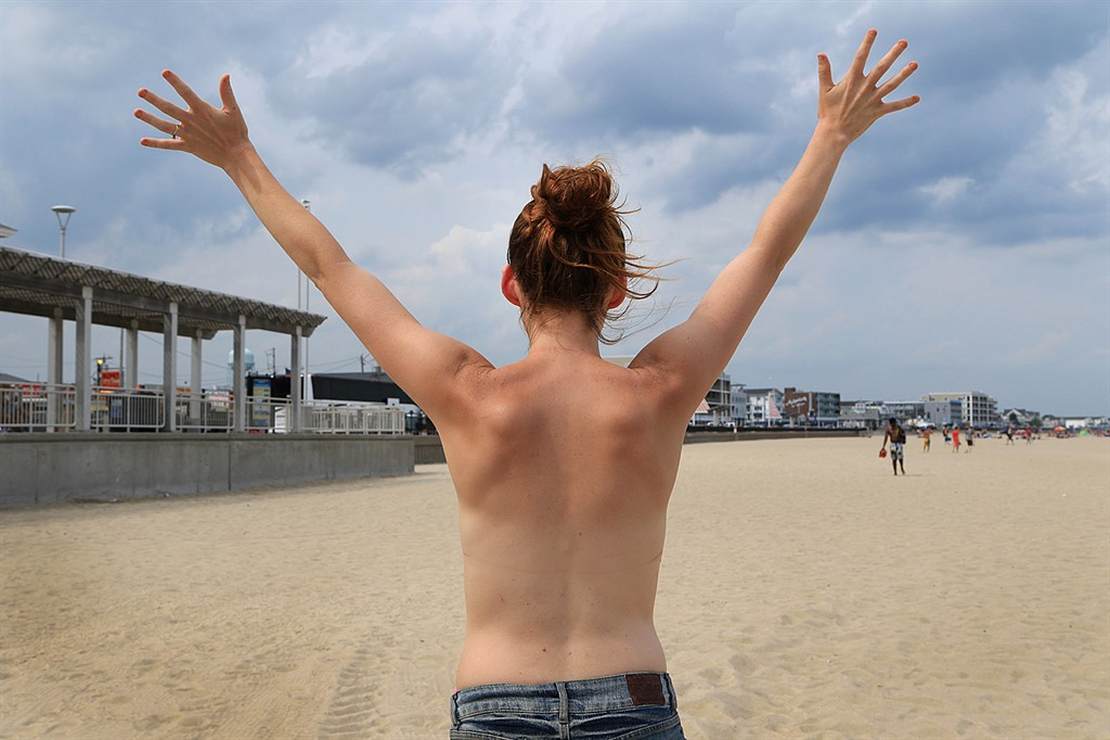
This debate keeps popping up in states around the nation and now it’s come to the beaches of Nantucket in Massachusetts. Residents voted in favor of a proposition that would legalize topless sunbathing on public and private beaches on the island. It was far from unanimous, however, and there is a lively debate taking place at the tourist resort. While younger people seem to be okay with the idea, many older, more conservative residents are opposed. There is also a legal battle brewing related to a state law that the local ordinance would conflict with. The Boston Globe interviewed a number of locals to get their opinions, even though the law hasn’t gone into effect yet.
Residents last month voted to approve topless sunbathing on all public and private beaches, a move that promises to bring a dash of European abandon to an enclave better known for preppies and private hedges.
The measure, approved by a vote of 327 to 242, must still be okayed by the state attorney general before it becomes law. The latest that could happen is Aug. 31, unless the town agrees to an extension.
Meanwhile, debate over the bylaw has continued to ripple across the island. Some shrug it off, but others, like Bachman, a native Nantucketer, think topless beaches will clash with the island’s small-town character and charm.
As noted above, the law won’t take effect unless and until the state Attorney General approves it and that might not happen until nearly the end of the summer. There is also an ongoing argument about whether some popular family beaches that attract a lot of children should be exempted from the law.
READ RELATED: 7.3 magnitude quake off the coast of Japan
Even getting past those hurdles, there’s the issue of a state law that remains in place. The law covers “open and gross lewdness and lascivious behavior” and it remains on the books. As you might imagine, it’s been around for a while.
The question over the children’s beaches was floated while the measure was being debated. Ultimately, they decided not to exempt them because of one of the fundamental weak points in all laws against topless sunbathing. The law could be interpreted to mean that men were not allowed to go topless at those beaches either.
No matter how you may feel about public nudity, it’s difficult to see how any of these laws are enforceable when they only apply to women. (We’ll ask a biologist to chime in and figure out what that actually means in a later update.) The laws are supposed to apply equally to everyone without discrimination. Telling women that they can’t sunbathe topless while keeping it perfectly legal for men should never survive a court challenge. And yet these laws have survived over and over again. The courts have a history of making exceptions for traditional and deeply held social considerations.
Personally, I’d prefer to stick with the law and just keep the police out of people’s choices for swimming attire. I don’t want to be told to wear a shirt at the beach and if there are women who feel the same way, who am I to judge? And nothing in this law says that anyone who is uncomfortable doing so has to go topless. They are free to keep wearing as much clothing as they wish. But I will agree that there should be some exceptions made for parents who don’t want to bring their children to a topless beach. I’m not sure how that would be best handled in drafting these laws, but it’s worth looking into.
Source:





